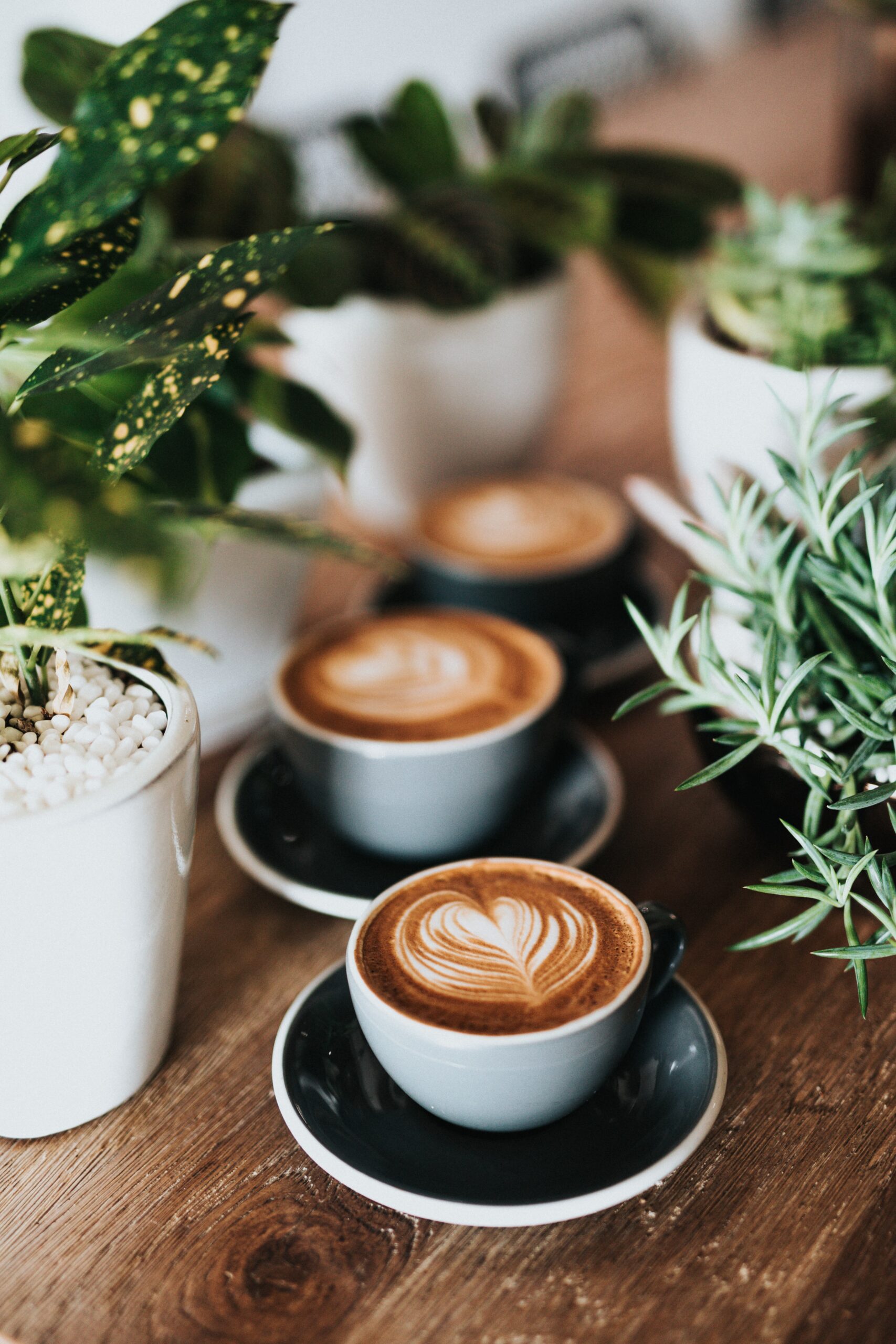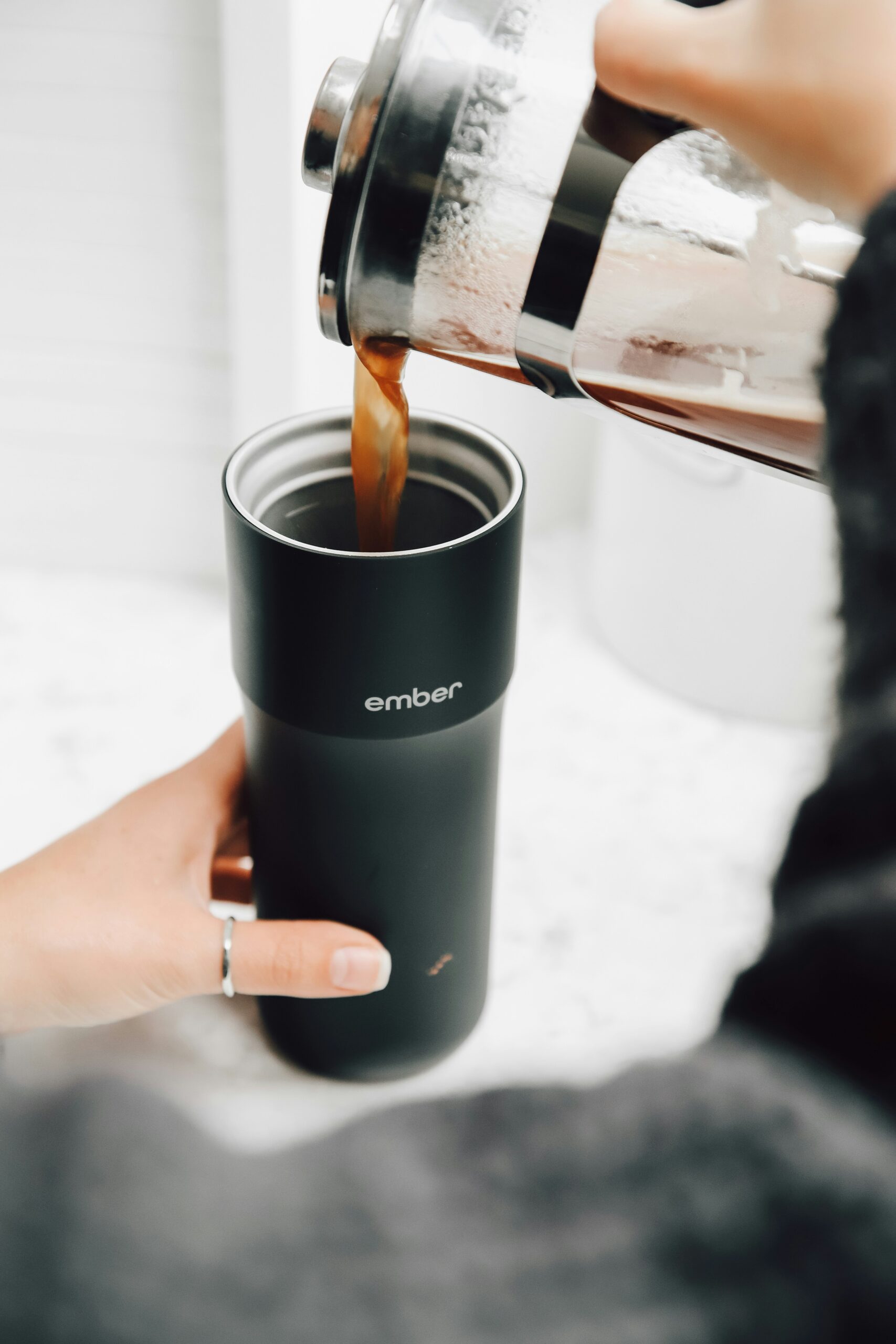When it comes to the best coffee alternatives, there are plenty of delicious options that won’t leave you feeling left out from the coffee scene. From chicory root coffee and dandelion root coffee to herbal tea blends and smoothies, these alternatives should definitely be on your radar.
Basic overview of the best coffee alternatives
Chicory Root Coffee is a great way to enjoy a cup of coffee without the caffeine. It has an earthy aroma and provides a rich taste that some people find similar to regular brewed coffee. Dandelion Root Coffee also lacks caffeine with its nutty flavor profile, making it ideal for those looking for something unique yet familiar.
Herbal Teas are a wonderful way to get creative with your hot beverages while still avoiding caffeine altogether. There are so many varieties to choose from and can be combined with a variety of spices and fruits for added flavor. Rooibos, chamomile, turmeric, and ginger teas are all great options that offer various health benefits as well.
Smoothies are a perfect way to get creative with your beverages while still being on the healthy side. By blending together different fruits, vegetables, herbs and spices you can create an endless array of delicious drinks without having to rely on coffee. Coconut smoothies or green smoothies make a fantastic alternative to your regular cup of joe!
These alternatives provide something unique and enjoyable while also avoiding caffeine which can help those who want to cut down their intake or remove it from their diet completely. Whether you’re looking for a new morning ritual or just something different to try out, there is sure to be an alternative coffee option out there that fits your needs perfectly.
What are coffee alternatives?
Coffee alternatives—also known as herbal coffees, coffee substitutes, and caffeine-free coffees—are beverages made from herbs, spices, grains, or roots that are brewed similarly to traditional coffee. They can provide a range of flavors and health benefits depending on the ingredients used. Alternative coffees have become increasingly popular over the years due to their ability to offer a similar flavor profile as traditional coffee but without the stimulating effects associated with caffeine. Additionally, they often contain more natural ingredients than standard drip-brewed coffee which may add nutritional value.
Some common types of alternative coffees include roasted grain beverage (such as Postum), chicory root extract (like Cafix), dandelion root tea (like Dandy Blend), herbal coffee (such as Teeccino), and carob extract (like Caro) to name a few. Aside from their caffeine-free properties, these alternatives may also provide some health benefits such as improved digestion, enhanced liver function, weight loss, and immune system support depending on the ingredients used.
Ultimately, coffee alternatives can be an excellent choice for those looking for an enjoyable beverage experience without the jittery effects of traditional coffee. Furthermore, there are numerous types of alternative coffees available so it’s easy to find one that suits your individual tastes and needs. Give them a try today and enjoy a naturally flavorful beverage any time of day.
What is the best replacement for coffee?
When looking for an alternative to coffee, it is important to consider the health benefits of the beverage. While coffee does provide some beneficial antioxidants and nutrients, it also contains caffeine which can have a negative effect on health. Caffeine can cause increased heart rate and blood pressure, insomnia, irritability and even addiction.
Many people are now turning to herbal teas as a replacement for coffee. Herbal teas come in many varieties such as chamomile, hibiscus, rooibos and peppermint tea. They provide a range of health benefits including reducing inflammation, improving digestion and helping to reduce stress. Additionally, herbal teas do not contain any caffeine so they will not create the same side effects as coffee.
Other alternatives to consider include green tea, matcha and yerba mate. Green tea contains catechins which are powerful antioxidants with numerous health benefits. Matcha is a type of green tea powder that is high in antioxidants and can help boost energy levels without the jitters caused by caffeine. Yerba mate is a South American herbal tea that is known for its energizing effects without the crash associated with coffee.
When looking for an alternative to coffee, it is important to consider the health benefits of each beverage as well as your own personal preferences. Each of these options provides various vitamins, minerals and other nutrients, so it is important to research them in order to determine which one will best suit your dietary needs and lifestyle.
What can I drink to wake up instead of coffee?
There are plenty of non-caffeinated beverages that can help wake you up in the morning. From energizing herbal teas to smoothies and juices, there is something to suit everyone’s taste and lifestyle.
Herbal Tea: Herbal tea has been used for centuries as an energy booster, with some of the most popular varieties including chamomile, peppermint, ginger, and rooibos. These contain compounds such as polyphenols which may provide a mild pick-me-up without the jitters associated with caffeine.
Smoothies: Smoothies can be a great way to start your day off on the right foot by providing essential vitamins and minerals that your body needs to stay energized. Try adding ingredients such as oats, bananas, spinach, and matcha powder to your favorite smoothie recipe for a nutritious and energizing breakfast beverage.
Juices: Juices are also a great option if you’re looking for an alternative to coffee. Green juices in particular can provide an energizing boost due to the combination of vegetables and fruits that provide essential vitamins, minerals, and antioxidants which may give your body a natural boost of energy.
Water or other electrolyte-rich beverages: Drinking water or other electrolyte-rich beverages is often overlooked but can actually be very effective in helping you stay awake during the day. Hydration is key when it comes to keeping your energy levels up so make sure you stay hydrated throughout the day by drinking plenty of water or other electrolyte-rich beverages.
Overall, there are plenty of non-caffeinated drinks that can help you stay energized and awake during the day. From herbal teas to smoothies and juices, find a beverage that works for your lifestyle and taste preferences so you don’t have to rely on coffee as your go-to source of energy every morning.
What can I drink that is healthier than coffee?
Green tea is an excellent alternative to coffee. It contains high levels of antioxidants, which can help protect cells from damage and reduce inflammation throughout the body. In addition, green tea may have more health benefits than coffee because it contains less caffeine – although it still has a small amount of caffeine. Studies suggest that consuming green tea regularly may lower your risk of cancer, diabetes, and heart disease. Plus, it has been found to improve brain function and increase energy levels. Green tea also comes in various flavors, making it a great way to enjoy something hot without the added sugar or creamers often used with coffee beverages.
Another popular option for those looking for healthier alternatives to coffee is herbal teas such as chamomile or peppermint. These herbal teas are naturally caffeine-free and often contain beneficial vitamins and minerals. They may also help reduce stress, improve digestion, and boost your immune system. Additionally, many herbal teas can be enjoyed hot or cold – meaning you can enjoy a refreshing beverage in the summer months without having to worry about the side effects of caffeine.
Finally, there is fruit tea – which is made by steeping dried pieces of fruit or berries in hot water. This type of tea has a sweet taste that helps satisfy cravings for sugary drinks while providing some vitamins and minerals too. Fruit tea can also provide antioxidants and other health benefits depending on what type of fruit is used. So if you’re looking for something healthier than coffee, consider trying out some of these alternatives. Your body will thank you for it.
What can I drink instead of coffee for acid reflux?
For people suffering from acid reflux and other digestive issues, coffee can be a major trigger. Fortunately, there are many alternatives that you can turn to for your caffeine fix.
Chicory is one such alternative that is often used as a substitute for coffee. It looks and tastes similar to regular coffee but it contains much less caffeine than traditional coffee beans. Chicory also has an alkaline effect on the body which helps reduce acidity in the stomach, making it a good choice if you have acid reflux or other digestive issues.
Green tea is another option for those who want to get their caffeine without triggering their acid reflux symptoms. Green tea is naturally high in antioxidants, promoting better health overall as well as reducing inflammation. Green tea also has significantly less caffeine than coffee, so it can be a good option for those who want the benefits of caffeine but don’t want to suffer from acid reflux.
Herbal teas are a great way to get your daily dose of caffeine without triggering acid reflux symptoms. Chamomile, peppermint, and ginger are all known to have calming effects on the digestive system, helping reduce inflammation and improve digestion overall. You can even buy herbal tea blends specifically designed for those with digestive issues and acid reflux, so you can get the added benefit of herbs that help settle your stomach while still getting your daily fix of caffeine.
Finally, Kombucha is becoming increasingly popular as a healthier alternative to coffee. This fermented tea contains probiotics and antioxidants, so it can help improve digestion, boost the immune system, and reduce inflammation all at once. Kombucha also has a naturally low caffeine content, making it ideal for those who are looking for an energy boost without triggering their acid reflux symptoms.
No matter which option you choose, just remember to stay away from traditional black and espresso coffees if you’re trying to avoid acid reflux flare-ups. With these alternatives, you can still enjoy your favorite beverage without suffering from uncomfortable digestive issues afterward.
What gives you the same energy as coffee?
If you’re looking for a pick-me-up without the crash and jitters of coffee, there are many alternatives that can provide lasting energy. Some of these include green tea, matcha, cacao, adaptogenic herbs like ashwagandha and rhodiola rosea, maca root powder and even some superfoods like spirulina or chlorella.
Green tea is rich in polyphenols which act as antioxidants and promote cell health. Matcha provides a concentrated form of green tea with high levels of caffeine and l-theanine to provide sustained energy without the crash associated with coffee. Cacao contains naturally occurring molecules known as Nootropics which may help enhance mental acuity and focus.
Adaptogenic herbs like ashwagandha and rhodiola rosea help increase energy levels naturally by balancing hormones, reducing stress and improving overall well-being. Maca root powder is a powdered form of the maca plant that’s packed with protein, vitamins, minerals, fiber and other essential compounds which may improve energy levels as well as mood.
Finally, some superfoods like spirulina or chlorella can give you an extra energy boost due to their high concentration of essential nutrients such as B vitamins, iron, magnesium and potassium. All these options are great alternatives to coffee for those looking for a sustained source of energy throughout the day without the crash associated with caffeine.
But remember, it’s important to always consult with your doctor before taking any supplement or herb. Make sure to discuss the possible benefits and side effects of each option and find out what will work best for you. With the right combination of diet, exercise and natural energy sources, you can maintain sustained energy levels all day long without having to rely on coffee.



